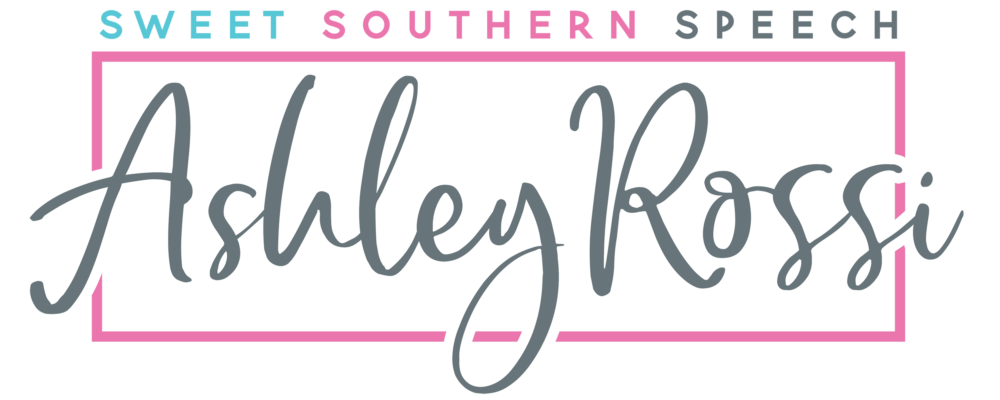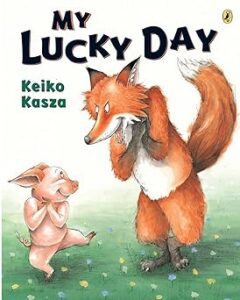When a delicious-looking piglet knocks on Mr. Fox’s door “accidentally,” the fox can hardly believe his good luck. It’s not every day that dinner just shows up on your doorstep. It must be his lucky day! Or is it? Before Mr. Fox can say grace, the piglet has manipulated him into giving him a fabulously tasty meal, the full spa treatment (with bath and massage), and . . . freedom. In a funny trickster tale of her own, Kasza keeps readers guessing until the surprise ending when they’ll realize it was piglet’s lucky day all along.
This clever, inferencing and predicting filled book can be used in speech therapy to address the concept of playing a trick on someone. It is also great for noticing character expressions, taking perspective and for targeting linguistic verbs! Discover more of the speech and language teaching concepts for using My Lucky Day in speech therapy below:



